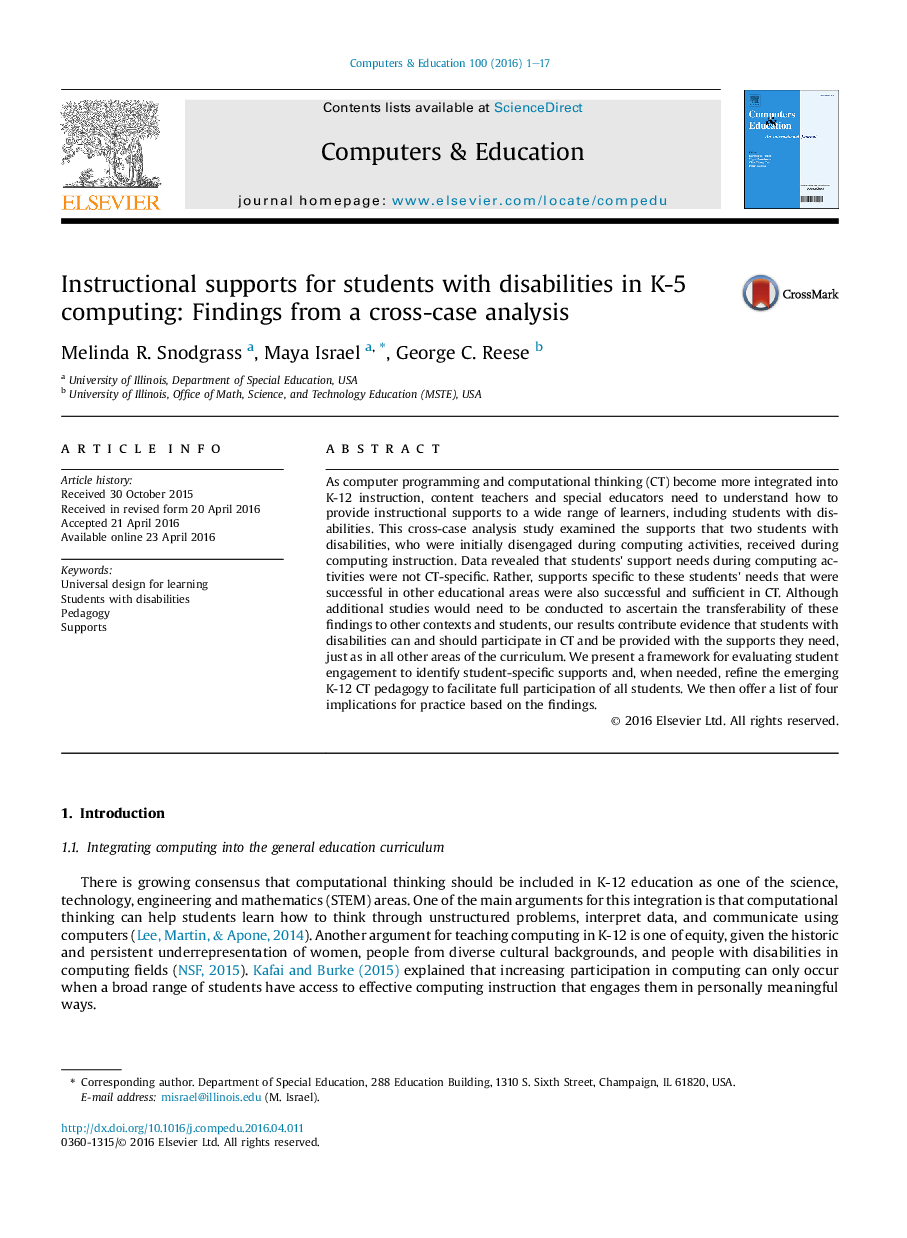| کد مقاله | کد نشریه | سال انتشار | مقاله انگلیسی | نسخه تمام متن |
|---|---|---|---|---|
| 348148 | 618158 | 2016 | 17 صفحه PDF | دانلود رایگان |
• Study of two elementary students with disabilities during computing instruction.
• Students with disabilities participated in computing instruction with supports.
• Effective student-specific supports from other subjects can be applied in computing.
• Refining emerging K-12 computing pedagogy may be needed for participation of all.
As computer programming and computational thinking (CT) become more integrated into K-12 instruction, content teachers and special educators need to understand how to provide instructional supports to a wide range of learners, including students with disabilities. This cross-case analysis study examined the supports that two students with disabilities, who were initially disengaged during computing activities, received during computing instruction. Data revealed that students' support needs during computing activities were not CT-specific. Rather, supports specific to these students' needs that were successful in other educational areas were also successful and sufficient in CT. Although additional studies would need to be conducted to ascertain the transferability of these findings to other contexts and students, our results contribute evidence that students with disabilities can and should participate in CT and be provided with the supports they need, just as in all other areas of the curriculum. We present a framework for evaluating student engagement to identify student-specific supports and, when needed, refine the emerging K-12 CT pedagogy to facilitate full participation of all students. We then offer a list of four implications for practice based on the findings.
Journal: Computers & Education - Volume 100, September 2016, Pages 1–17
